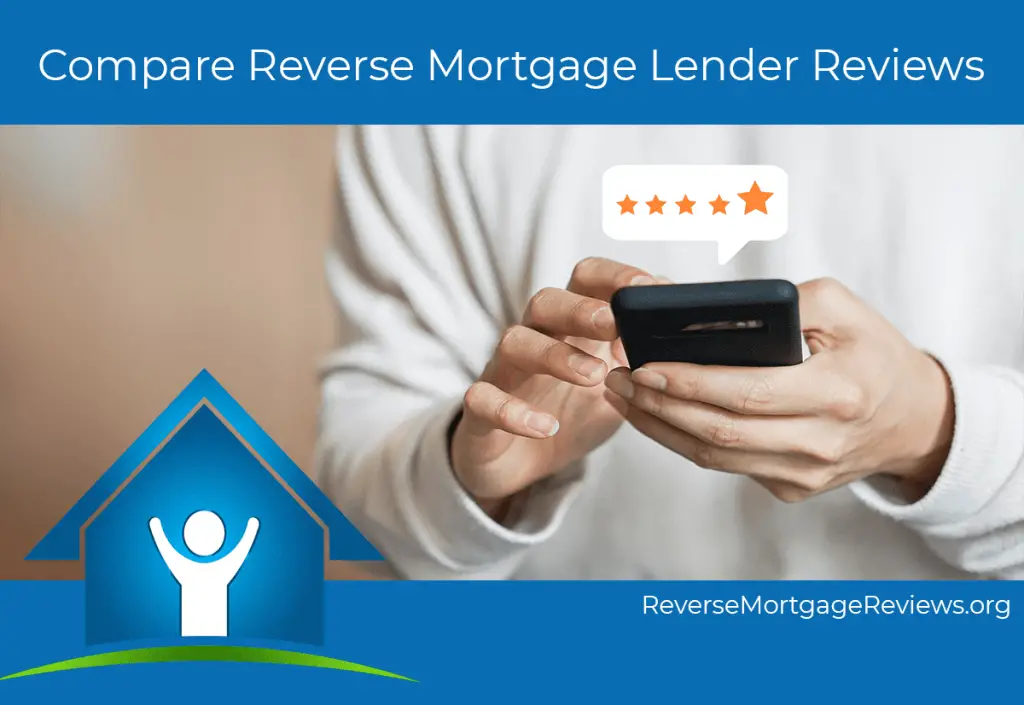Tips To Protect Yourself
- Consult with an independent financial adviser to find out what reverse mortgage package best suits your financial situation and needs.
- If you do not have a financial advisor, discuss your situation with a counselor approved by the US Department of Housing & Urban Development HUD-approved counseling agencies are available to assist you with your reverse mortgage questions. You can call 800-569-4287 to find a counselor in your area.
- Make sure you understand all the costs and fees associated with the reverse mortgage.
- Find out whether the reverse mortgage you are considering is federally-insured. This will protect you when the loan comes due.
- Find out whether your repayment obligation is limited to the value of your home at the time the loan becomes due.
- Make sure any reverse mortgage payments are first made directly to you do not allow anyone to persuade you to sign over the funds to someone else.
- Be wary of anyone who tries to pressure you into a decision that you are not completely comfortable with, such as investing the payments from your reverse mortgage into an annuity, insurance policy, or other investment product, or pressuring you into receiving a lump-sum payment over monthly payments.
- If you are uncomfortable with the reverse mortgage that you entered into, exercise your right of rescission within three days of the closing. A right of rescission allows you to cancel the mortgage within three days of closing without penalty.
What Is Shared Appreciation And Equity Participation
In exchange for a lower interest rate the lender and the borrower may agree to equity participation. Participation mortgages are so named because the lender participates, or has the right to a share in any increase in the value of your home.
A Shared Appreciation Mortgage takes into account the appreciation in value of the house between the time the loan is signed and the end of the loan term. The lender receives an agreed-to percentage of the appreciated value of the loan when the loan is terminated.
Reverse Mortgage Age Requirements For 2022
ALERT: The Wait is Over, ARLOs 2022 Reverse Mortgage Now Starts at Age 55!
If you meet the reverse mortgage age requirement of 62 years, you could be a candidate for the federally-insured Home Equity Conversion Mortgage program.
The loan can enable you to remain in your home longer and does not need to be repaid for as long as you maintain principal residency in your home and keep up with property taxes and insurance.
Because the length of the loan depends directly on how long you live in the home, the amount you can borrow also depends on that time frame, including the age at which you get the reverse mortgage.
Reverse mortgage proceeds can be accessed in a few different waysas a line of credit, as monthly term or tenure payments, as a lump sum, or some combination of those optionsand can be used in whatever way youd like for groceries, medication, or even utility bills.
Borrowers must pay an upfront mortgage insurance premium along with annual mortgage insurance of 0.5% of the outstanding loan balance annually.
You May Like: Reverse Mortgage On Condo
You Must Meet With A Housing Counselor
If want a HECM, you’ll have to complete a counseling session with a HUD-approved counselor beforehand. But a counseling session alone might not provide enough information for you to fully understand what you’re getting into. HECM counselors have reported that it can take a couple of hours to explain how these mortgages work and cover all of the topicsâincluding risks, costs, and consequencesâthat borrowers need to understand before taking out this kind of loan. Even after a HECM counseling session, many borrowers still don’t fully comprehend all of the reverse mortgage’s terms and requirements.
What If You Don’t Qualify

If you dont qualify for any of these loans, what options remain for using home equity to fund your retirement? You could sell and downsize, or you could sell your home to your children or grandchildren to keep it in the family, perhaps even becoming their renter if you want to continue living in the home.
Read Also: How Much Is Mortgage On 1 Million
Rejecting A Reverse Mortgage
Q: Under what circumstances should I not consider a reverse mortgage?A: Because of the upfront costs associated with a reverse mortgage, if you intend to leave your home within 2 to 3 years, there may be other less expensive options to consider, such as home equity loans, no-interest loans or grants that may be offered by your county government or a local non-profit to repair your home, or a tax deferral program, if youre having problems paying your property taxes. Also, if you want to leave your home to your children, then you should consider other options, because in many cases, the home is sold to pay back a reverse mortgage.
How Will My Credit History Be Examined For A Reverse Mortgage
An important part of qualifying for a reverse mortgage is the evaluation of a borrowers credit history.
Whether youre looking to supplement your retirement income, make repairs to your home or buy a new house altogether, a reverse mortgage can help.
But there will soon be a few additional steps to taking out a reverse mortgage, making the process more like that of getting a traditional forward mortgage.
Also Check: Mortgage Rates Based On 10 Year Treasury
How Much Money Can I Borrow
Three factors are considered to calculate how much money you can access:
- The age of the youngest borrower on title, including non-borrowing spouses
- The homes newly appraised value
- Current interest rates on the date you sign the closing documents
Note: The more valuable your home is, the older you are, and the lower the interest rate is = the more money you are able to borrow.
How Do I Qualify For A Hecm
You have to meet the following FHA requirements to get a HECM:
-
Youre 62 or older
-
You and/or an eligible spouse who must be named on the loan even if he or she is not a co-borrower live in the home as your primary residence. An eligible spouse means you are legally married before applying for a reverse mortgage.
-
You have no delinquent federal debts
-
You own your home outright or have a high amount of equity in it
-
You attend a mandatory counseling session with a HECM counselor approved by the Department of Housing and Urban Development
-
Your home meets all FHA property standards and flood requirements
-
You continue paying all property taxes, homeowners insurance and other household maintenance costs as long as you live in the home
You May Like: Recasting Mortgage Chase
What Disqualifies You From Getting A Reverse Mortgage
Some of the things that can prevent you from getting a reverse mortgage include not using the home as your principal residence, not having sufficient equity in the home, and lacking the financial resources to pay the ongoing costs of homeowners insurance, property taxes, maintenance, and upkeep. Other disqualifications include being delinquent on federal debt or living in an ineligible property.
How Much Equity Do I Need
The more equity you have in your home, the more likely it is that you can get cash from a reverse mortgage to supplement your retirement income, cover health care expenses, or take a trip. As a general rule of thumb, your equity should be at least 50% of your homes value. As home values have risen in 2021, many homeowners are finding they can qualify for a larger amount than in the past. Use our reverse mortgage calculator to see how much you could qualify to receive.
Also Check: How Much Is Mortgage On A 1 Million Dollar House
Types Of Reverse Mortgages
Most borrowers choose a Home Equity Conversion Mortgage, which is backed by the Federal Housing Administration . HECMs are the most common type of reverse mortgage, because they provide lenders with protection against losses by charging borrowers mortgage insurance while providing consumers with the safeguard of a required second opinion from a neutral reverse mortgage counselor.
There are also private lenders that offer reverse mortgage products, though the guidelines outlined here focus on HECMs. Most homeowners choose from three different types of reverse mortgages:
Home Equity Conversion Mortgages . Funds from a HECM can be used for any purpose. HECMs have a maximum claim amount, which limits how much a homeowner can borrow. In 2021, the maximum claim amount for a HECM is $822,375 in all parts of the country, as well as Guam and the U.S. Virgin Islands.
Proprietary reverse mortgages. Private companies offer reverse mortgage programs offering higher loan amounts than the HECM loan limits set by the FHA. You may be able to borrow more money from the outset than with a HECM, but these proprietary reverse loans dont have federal insurance backing and may be more expensive.
Single-purpose reverse mortgages. State and local government agencies may offer special reverse mortgages to meet specific homeowner needs, such as paying past-due property taxes or making repairs to keep a home safe and livable. However, not all states offer them.
How To Spot A Reverse Mortgage Scam

Below are some tips to avoid becoming a victim of reverse mortgage scams:
- Dont reply to unsolicited reverse mortgage offers by email or over the phone.
- Never give out confidential personal information over the phone or by email.
- Contact a HUD-approved counselor if youre not sure an offer is legitimate.
- Dont sign anything you dont understand.
Recommended Reading: 10 Year Treasury Yield Mortgage Rates
Only Certain Property Types Qualify
In order for homeowners to take out a reverse mortgage, they must meet a handful of requirements pertaining to the home. Homeowners need to own their home outright, or have a low enough mortgage balance that it can be paid off with the reverse mortgage. A borrower must maintain the home as his/her primary residence.
Switching gears to home qualifications, the following rules are in place regarding homes and how theyre built:
- A home must be classified as single family
- Vacation homes and secondary homes dont qualify for reverse mortgages
- Manufactured homes and condominiums may qualify for a reverse mortgage
Understanding the above property rules helps senior homeowners better position themselves to successfully apply for a reverse mortgage.
Be Wary Of Sales Pitches For A Reverse Mortgage
Is a reverse mortgage right for you? Only you can decide what works for your situation. A counselor from an independent government-approved housing counseling agency can help. But a salesperson isnt likely to be the best guide for what works for you. This is especially true if he or she acts like a reverse mortgage is a solution for all your problems, pushes you to take out a loan, or has ideas on how you can spend the money from a reverse mortgage.
For example, some sellers may try to sell you things like home improvement services but then suggest a reverse mortgage as an easy way to pay for them. If you decide you need home improvements, and you think a reverse mortgage is the way to pay for them, shop around before deciding on a particular seller. Your home improvement costs include not only the price of the work being done but also the costs and fees youll pay to get the reverse mortgage.
Some reverse mortgage salespeople might suggest ways to invest the money from your reverse mortgage even pressuring you to buy other financial products, like an annuity or long-term care insurance. Resist that pressure. If you buy those kinds of financial products, you could lose the money you get from your reverse mortgage. You dont have to buy any financial products, services or investment to get a reverse mortgage. In fact, in some situations, its illegal to require you to buy other products to get a reverse mortgage.
Recommended Reading: Chase Mortgage Recast Fee
What To Ask A Lender About Reverse Mortgages
Before getting a reverse mortgage, ask your lender about:
- how you can get the money from a reverse mortgage
- if there are any fees you have to pay
- what interest rate you have to pay on the money you borrow
- what can cause you to default on the loan
- any penalties you have to pay if you sell your home within a certain period of time
- how much time you have to pay off the loans balance if you move
- how much time your estate has to pay off the loans balance if you die
- what happens if it takes your estate longer than the stated period to fully repay the loan when you die
- what happens if the amount of the loan ends up being higher than your homes value when it’s time to pay the loan back
What Is Reverse Mortgage Counseling
Home equity conversion mortgages make it possible for homeowners 62 and older to withdraw the equity from their homes, without having to make monthly payments to a lender. This is one of the key differences between reverse mortgages and home equity loans or home equity lines of credit . Approval for a home equity conversion mortgage hinges on a number of factors, including the completion of reverse mortgage counseling.
During a reverse mortgage counseling session, an approved counselor will discuss:
- The borrower’s financial needs and situation
- Features of a reverse mortgage
- Financial responsibilities for a reverse mortgage
- Costs of getting a reverse mortgage
- Reverse mortgage alternatives
- How to spot reverse mortgage scams
Upon completion of this counseling, a homeowner will receive a certificate that they’ll need in order to fill out their HECM application.
Reverse mortgage counselors can withhold a counseling certificate if they believe a homeowner does not fully understand their responsibilities with a home equity conversion mortgage.
Read Also: How Does 10 Year Treasury Affect Mortgage Rates
What Are Some Things To Keep In Mind Before Applying For A Reverse Mortgage
In considering a reverse mortgage, remember:
- The homeowner must meet with a HUD-approved counselor to discuss their eligibility, financial responsibilities of the loan, and other loan alternatives.
- There are no limits as to how much money the homeowner can borrow.
- If the homeowner still owes a lot of money on a traditional mortgage, they might not qualify for a reverse mortgage.
- The homeowner must have the money to pay ongoing property charges, including taxes and insurance as well as maintenance and repair costs.
What Can A Reverse Mortgage Be Used For
Supplementing retirement income, covering the cost of needed home repairs or paying out-of-pocket medical expenses are common and acceptable uses of reverse mortgage proceeds, according to Bruce McClary, spokesperson for the National Foundation for Credit Counseling.
In each situation where regular income or available savings are insufficient to cover expenses, a reverse mortgage can keep seniors from turning to high-interest lines of credit or other more costly loans, McClary says.
Read Also: Who Is Rocket Mortgage Owned By
Understanding Reverse Mortgage Loan Qualifications And Requirements
A Home Equity Conversion Mortgage , also known as a government-insured reverse mortgage loan, is a great tool to help you utilize the equity from your home and convert a portion of it into cash. Thousands of senior homeowners have taken advantage of this beneficial tool since its inception in 1961, and you may be able to as well.
Below are some qualifications and requirements as well as other obligations. Eligibility for reverse mortgages depends on : 1) General requirements . 2) Home qualifications . 3) Financial Qualifications .
Frequently Asked Questions Regarding Reverse Mortgage Eligibility

- If the homeowner is under 62 years of age but they are on permanent disability, do they qualify?
- No. The minimum age is 62 years and there are no exceptions for disability or Social Security status.
To assist you in better understanding this type of loan we suggest you read our What is a Reverse Mortgage page or look into calculating how much you may be able to receive using our free reverse mortgage calculator.
Read Also: Rocket Mortgage Requirements
Breaking The Rules Have Consequences
There are a few specifications the borrower must maintain on an ongoing basis in order to keep the reverse mortgage loan in good standing. They are very simple, but are essential.
-Remaining in the home
The borrower must occupy the home as his or her primary residence. Once the borrower moves or leaves the home permanently or for more than one year, the loan becomes due and payable. If the borrower moves to an assisted living facility or nursing home, at that point the loan will have to be repaid.
-Tax and insurance
Under the terms of the reverse mortgage, the borrower must pay annual property tax as well as maintain a homeowners insurance policy. These requirements come along with almost all home loans, so anyone who has held a forward mortgage will be accustomed to these ongoing property charges. Failure to pay either property tax or maintain homeowners insurance will result in the loan becoming due and payable.
-Maintaining the home
The final requirement of a FHA-insured reverse mortgage is maintaining the homes condition. The home must remain in good repair throughout the course of the loan, as determined by the loan servicer. Upkeep of the home along with paying property tax and insurance and remaining in the home will ensure the borrower is in good standing on the reverse mortgage and can age in place as long as he or she chooses.
ARLO recommends these helpful resources:
